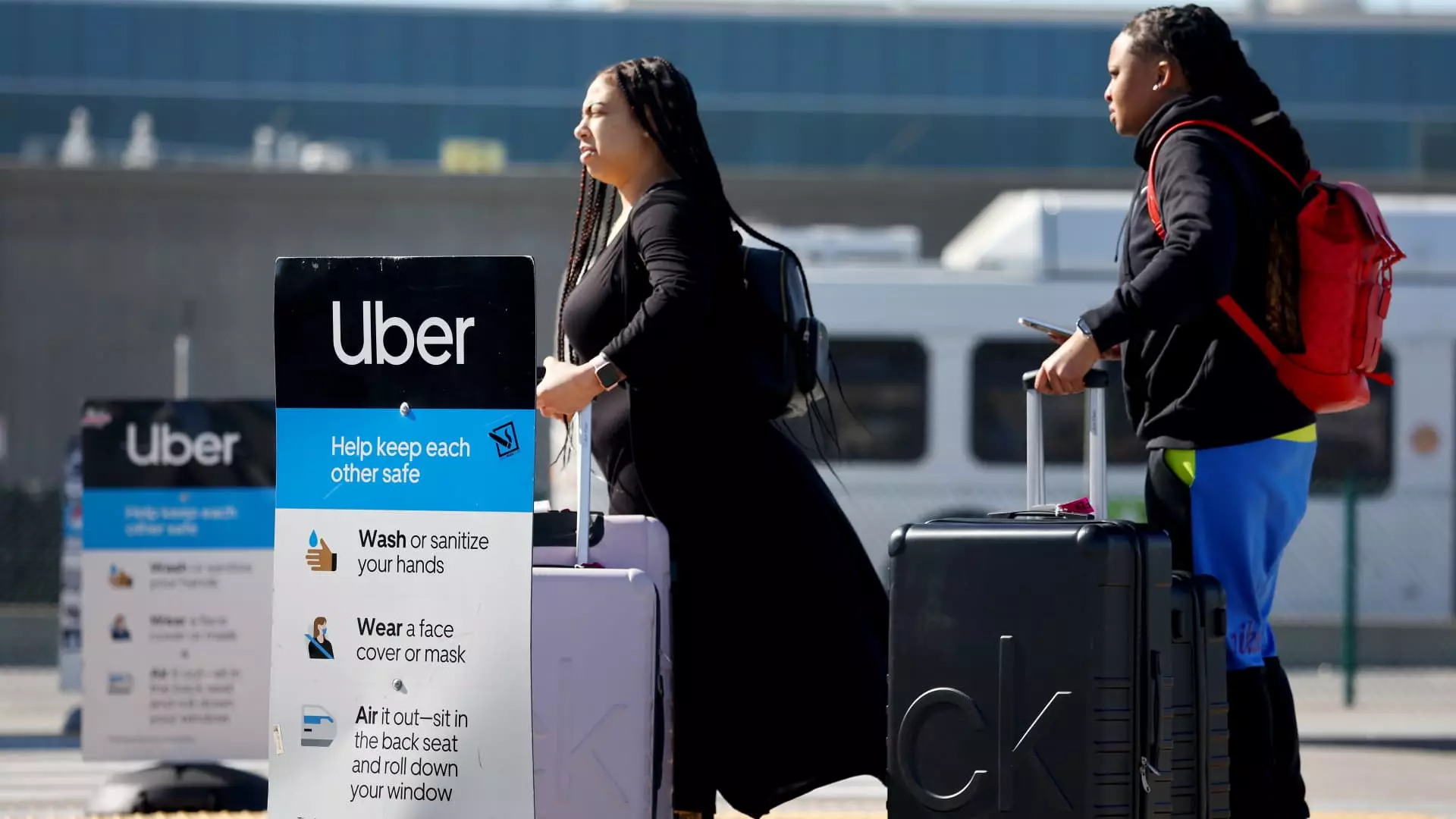Delta Air Lines recently unveiled a strategic partnership with Uber, marking a significant shift in its approach to ground transportation for travelers. This new collaboration will see Delta’s SkyMiles loyalty program linked to Uber’s services, enhancing the travel experience for passengers while simultaneously terminating its eight-year relationship with Lyft. Delta’s decision to partner with Uber signals an evolving landscape within travel alliances, focusing on maximizing customer benefits and streamlining the travel journey.
Through this newly minted partnership, Delta SkyMiles members stand to gain substantial rewards. After linking their accounts, users can accumulate miles on various Uber services—one mile per dollar on UberX rides to and from the airport, two miles for premium service trips like Uber Comfort and Uber Black, and a generous three miles on Uber Reserve rides. Additionally, customers ordering through Uber Eats can earn one mile for each dollar spent over $40, further extending the benefits of the loyalty program into the realm of food delivery.
This structured earning system not only incentivizes travelers to utilize Uber for their transport needs but also creates a seamless integration between air travel and ground transport, which has become increasingly essential in our fast-paced world. Delta’s CEO, Ed Bastian, emphasized the airline’s commitment to enhancing travel efficiency, particularly as air travel experiences a marked resurgence.
The conclusion of Delta’s partnership with Lyft raises questions about the logistics and reasoning behind the switch. While specifics were not disclosed, this transition highlights an emerging trend wherein airlines are reassessing their partner relationships based on customer engagement and market dynamics. Delta’s spokesperson confirmed that customers with linked Lyft accounts will continue to earn miles until April 7, as they navigate the transition process. This thoughtful approach ensures that customers feel valued, acknowledging their previous loyalty to Lyft and encouraging them to embrace the new alliance with Uber.
Lyft, in reaction to the partnership shift, reiterated its commitment to expand horizons through collaborations with various major brands. It maintains a focus on customer experience, evidenced by its existing relationships with companies like Alaska Airlines and Hilton. The question remains whether Lyft’s adaptability in this competitive space can safeguard its market share and retain its customer base.
The financial dynamics of this partnership are crucial for both Delta and Uber. Delta’s credit card partner, American Express, reportedly facilitates this new alliance as it offers credits for Uber services to cardholders. This is a strategic maneuver that aligns both companies in stimulating customer engagement while generating additional revenue streams. Delta’s optimism is reflected in its earnings forecast, which anticipates a staggering $7 billion in 2024 from the AmEx collaboration, aiming to ramp up to a long-term goal of $10 billion.
On the ride-sharing front, Uber’s impressive statistics present a formidable case for Delta’s choice. With a staggering 161 million active users engaged across its platforms and over 2.8 billion rides booked in the last reported quarter, Uber showcases its expansive market reach and reliability. This significant user engagement illustrates the brand’s supremacy over Lyft and establishes Uber as a more appealing partner for Delta.
With the new partnership announcement made during the CES tech show, Delta has set the stage for additional innovations in the travel sector. In tandem with their partnership with Uber, Delta unveiled an AI-powered assistant for its app, promising to enhance the user experience during bookings and streamline travel itineraries. The airline is also working on upgrades to its in-flight entertainment systems. These advancements not only improve customer service but also set a precedent for how airlines will leverage technology in the future.
The partnership between Delta Air Lines and Uber represents a pivotal moment in travel logistics, offering enhanced benefits for SkyMiles members and marking a strategic pivot away from its previous association with Lyft. As airlines increasingly adapt to customer needs and technological advancements, this alliance is likely to become a benchmark for future collaborations in the aviation sector. Delta’s focus on creating a frictionless travel experience, combined with Uber’s substantial market presence, sets a promising precedent for how airline and ride-hailing services can converge to elevate the traveler’s journey.

